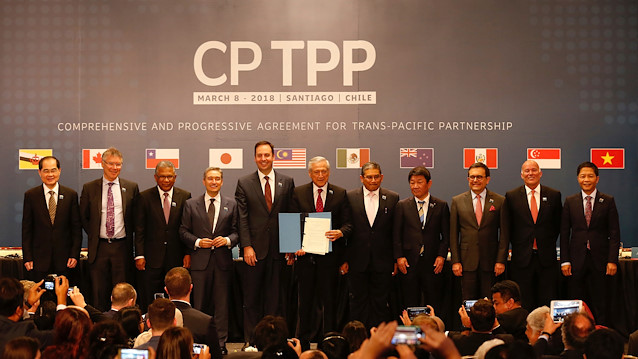
Trans-Pacific Partnership, from which US withdrew last year, set to come into force on Dec. 30
Australia has become the sixth country to ratify Trans-Pacific Partnership (TPP) on Wednesday.
According to Japan’s Kyodo news agency, Australian Prime Minister Scott Morrison said the agreement was "one of the most comprehensive and ambitious" in the country's recent history, and New Zealand was notified of the completion of domestic procedures.
"It will help support Australian businesses to grow and see annual benefits of up to 15.6 billion Australian dollars [$11.1 billion] to our national economy by 2030," the Kyodo quoted Morrison as saying.
The pact, officially the Comprehensive and Progressive Agreement for Trans-Pacific Partnership, will come into force 60 days after the completion of necessary domestic procedures in at least six signatories.
As Australia ratified the agreement, it is expected to be implemented as of Dec. 30.
After the U.S. President Donald Trump withdrew his country from the deal in January 2017, the remaining 11 parties, which constitutes 13 percent of the world's economy, signed the revised pact in March 2018.
Japan, Canada, Mexico, Singapore and New Zealand had ratified the deal earlier.
The agreement, which will provide tax cuts in agricultural and industrial products, will facilitate the companies' overseas business.
Other signatories -- Vietnam, Malaysia, Brunei, Peru and Chile -- have yet to ratify the TPP.


